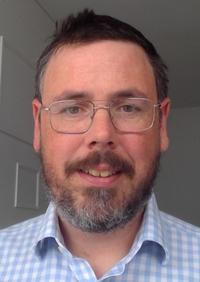Health and Wellbeing (2021 cohort)
Chronic pain affects 30% of people causing major personal, economic, and societal challenges. Less than two percent of people living with chronic pain (PLWCP) access pain services, and of those, many are eventually discharged to self-manage. PLWCP represent a varied group often made to feel different and, excluded from society. They are left to exist in an “in-between” space sometimes called a liminal space; neither continuing to be supported by healthcare, nor living well and independently self-managing their pain. Increasingly opportunities to connect, offered by social media, mean PLWCP are talking about their struggles and frustrations with a system that has failed them. Little is currently known about how PLWCP make sense of this situation, and what when they are left “betwixt and between” healthcare and living well. How healthcare professionals and policy makers work with PLWCP in this space is also unknown. Research suggests this space provides opportunities to question the current situation and for solutions to develop. My research will investigate this liminal space using Participatory Action Research (PAR) which is an approach that is done both with, and for, the people affected by the subject of interest, in this case chronic pain. Drawing upon my involvement in these liminal spaces, including a collaborative peer led group called Footsteps Festival, this research will record the events that are developed and their impact, including assessing any events and actions that happen and their effects, as well as any further events that are developed because of this. Examples of how this group have an effect on healthcare and also on policy makers will be studied. This research has the potential to transform pain management. It aims to create new models and examples of grassroots action by communities with pain; to challenge existing inequalities and power imbalances and to improve our understanding of how pain management can work when uncertainty is present. It will bring the voice of the community of PLWCP to national and international platforms and challenge systems traditionally under the power of clinical and professional groups, not PLWCP.
I undertook a yearlong NIHR pre-doctoral fellowship to develop my skills in research. As part of that year, I co-authored several peer review papers including one observational study of physio behaviours and another meta-ethnography. I also attended training in qualitative methods at QMUL, medical statistics at UCL as well as building research relationships and understanding of participatory action research and co-production. I started by considering Patient and Public Involvement (PPI) and this led me to consider more meaningful participatory and engagement approaches.
I have continued to develop my interest and skills in meaningful involvement beyond my fellowship including attending a 4-day Erasmus training in co-creating welfare at Coventry university. I have built connections with local, national, and international patient ambassadors. I have been involved in the emergence of an initiative called footsteps which a co-produced festival to support people outside healthcare in management of their long-term pain. I also have set up a work forum to embed a culture of participation and co-production.
This fellowship will enable me to explore themes related to how we navigate challenges of living with pain, outside and beyond healthcare provision. My knowledge and experience mean I am perfectly situated to look at the issues using Footsteps as a case study. My experience has also provided me with insights into challenges that arise during participatory approaches. I would like to further understand these challenges through this PhD.



